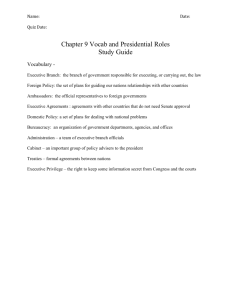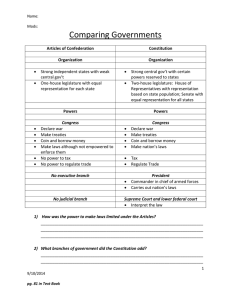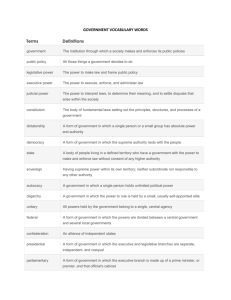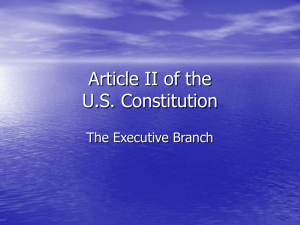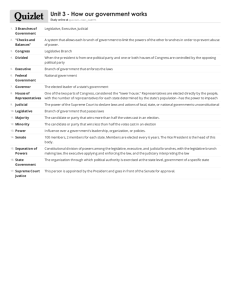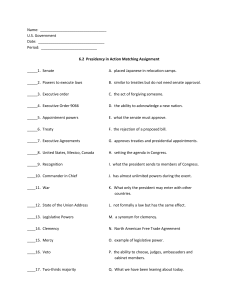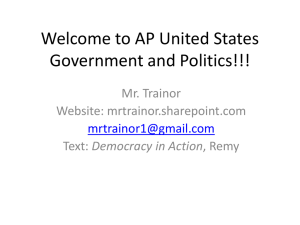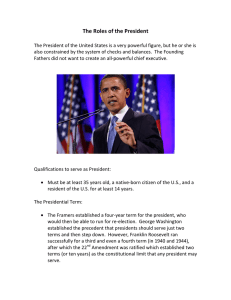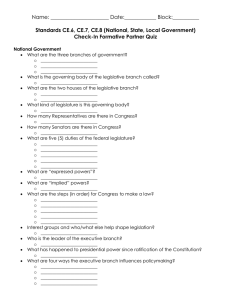Executive on Legislative
advertisement
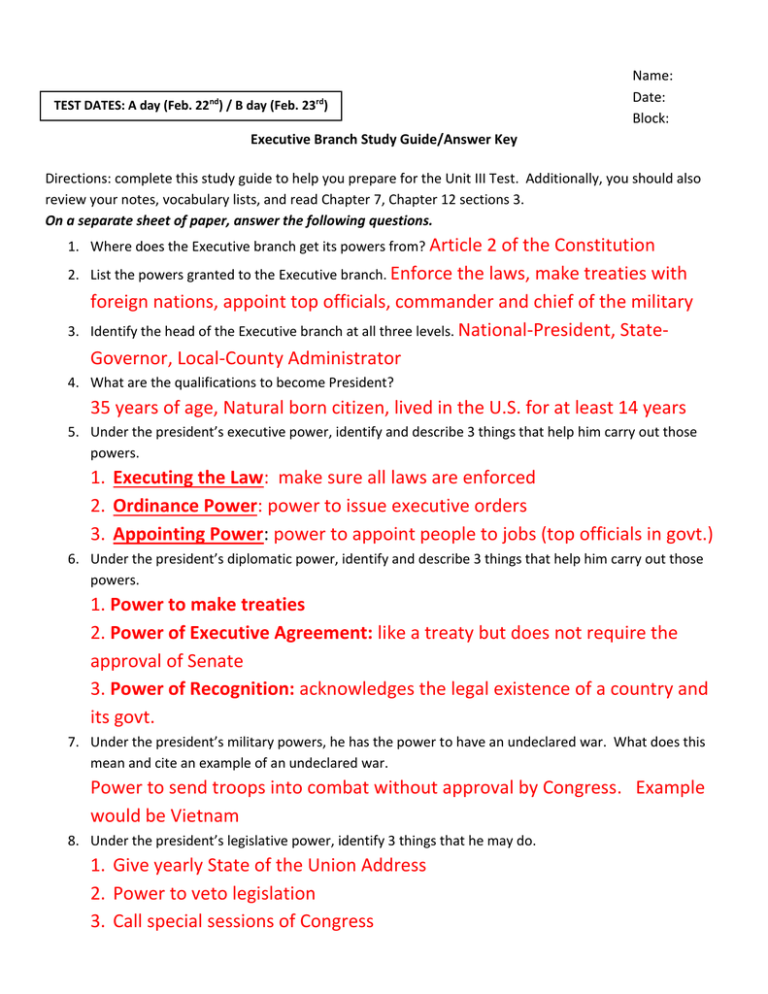
TEST DATES: A day (Feb. 22nd) / B day (Feb. 23rd) Name: Date: Block: Executive Branch Study Guide/Answer Key Directions: complete this study guide to help you prepare for the Unit III Test. Additionally, you should also review your notes, vocabulary lists, and read Chapter 7, Chapter 12 sections 3. On a separate sheet of paper, answer the following questions. 1. Where does the Executive branch get its powers from? Article 2. 3. 2 of the Constitution List the powers granted to the Executive branch. Enforce the laws, make treaties with foreign nations, appoint top officials, commander and chief of the military Identify the head of the Executive branch at all three levels. National-President, StateGovernor, Local-County Administrator 4. What are the qualifications to become President? 35 years of age, Natural born citizen, lived in the U.S. for at least 14 years 5. Under the president’s executive power, identify and describe 3 things that help him carry out those powers. 1. Executing the Law: make sure all laws are enforced 2. Ordinance Power: power to issue executive orders 3. Appointing Power: power to appoint people to jobs (top officials in govt.) 6. Under the president’s diplomatic power, identify and describe 3 things that help him carry out those powers. 1. Power to make treaties 2. Power of Executive Agreement: like a treaty but does not require the approval of Senate 3. Power of Recognition: acknowledges the legal existence of a country and its govt. 7. Under the president’s military powers, he has the power to have an undeclared war. What does this mean and cite an example of an undeclared war. Power to send troops into combat without approval by Congress. Example would be Vietnam 8. Under the president’s legislative power, identify 3 things that he may do. 1. Give yearly State of the Union Address 2. Power to veto legislation 3. Call special sessions of Congress 9. Under the president’s judicial power, identify and describe the 4 things he may issue. 1. 2. 3. 4. Pardon: legal forgiveness of a crime Amnesty: pardon for a large group of people Reprieve: postponing of a sentence Commutation: reduction of a sentence 10. Identify and describe the 8 roles of the president. 1. 2. 3. 4. 5. 6. 7. 8. Chief Executive: allows him to ensure the laws are carried out fairly Chief Diplomat: allows him to establish foreign policy with other nations Chief Legislator: allows him to submit new ideas for laws Chief Citizen: moral leader and figure head of the U.S. (role model for the community) Chief of State: heads the national government Economic Leader: responsible for planning the federal government’s budget Commander- in- Chief: commands all U.S. military troops Chief of Party: informal leader of his political party 11. Identify and describe the function of the president’s executive offices. 1. National Security Council: advise and assist the president on national security and foreign policy 2. Office of Management and Budget: (BMO) assists president in preparing the federal budget and supervise its administration 3. Office of National Drug Control Policy: established policies, priorities, and objectives for the nation’s drug control program 4. Council of Economic Advisors: provide president with economic analysis and advice on the development and implementation of economic policy 5. The Cabinet: advise the president on any subject he may require relating to duties of their offices 6. Other Offices: Office of Policy Development, National Space Council, Council of U.S. Trade Representatives, Council of Environmental Quality, Office of Science and Technology 12. What are the official roles of the vice president and 1st lady? no official duties 13. After the president, identify the next 5 positions in line for the presidential succession. 1. 2. 3. 4. 5. Vice President – Joe Biden Speaker of the House – John Boehner President Pro Tempore- Daniel Inouye Secretary of State- Hillary Clinton Secretary of Treasury- Timothy Geithner Bonus: identify the actual people’s names that currently hold those positions. 14. List the checks the executive branch has on the legislative and judicial branches. Executive on Legislative: vetoes legislation passed by Congress, convenes a special session of Congress Executive on Judicial: nominates judges/justices

